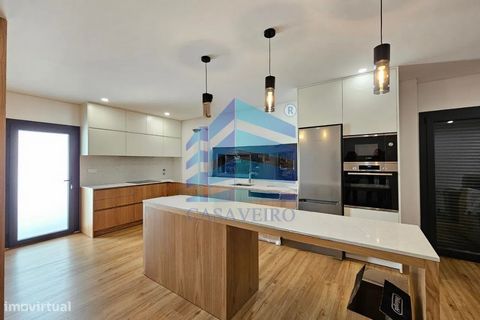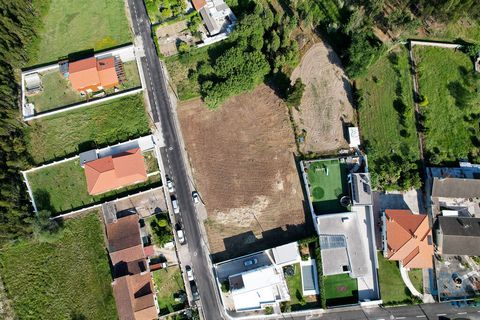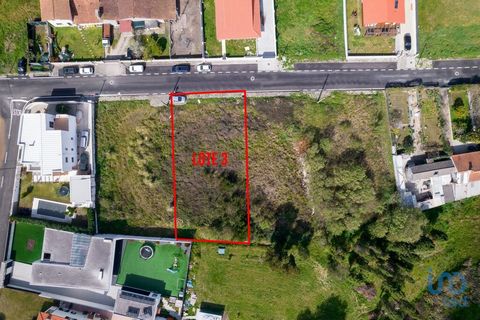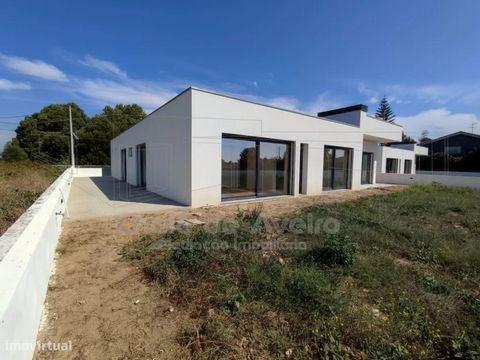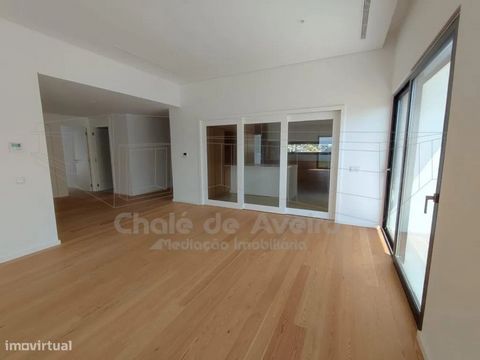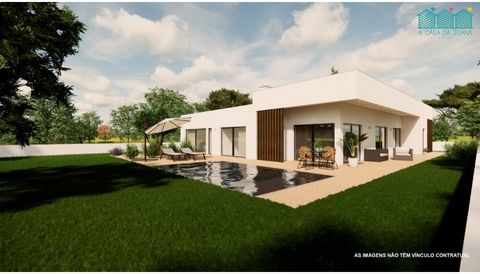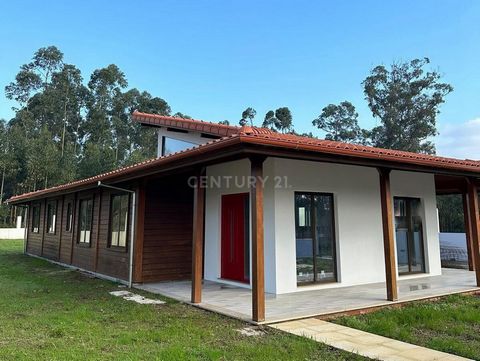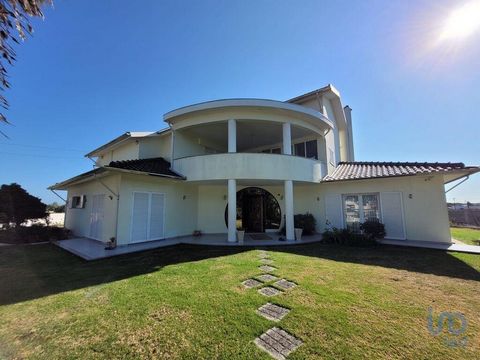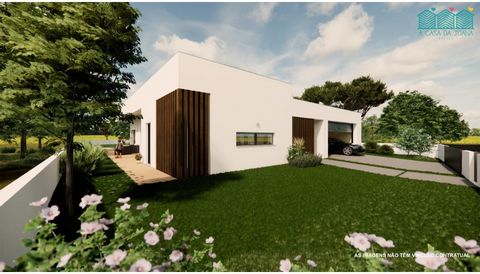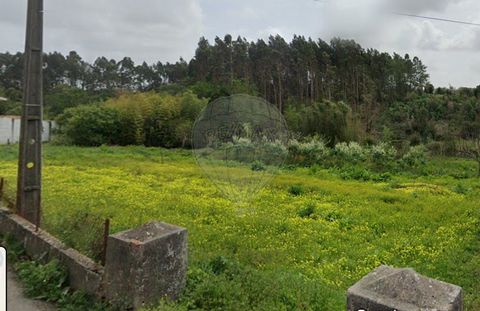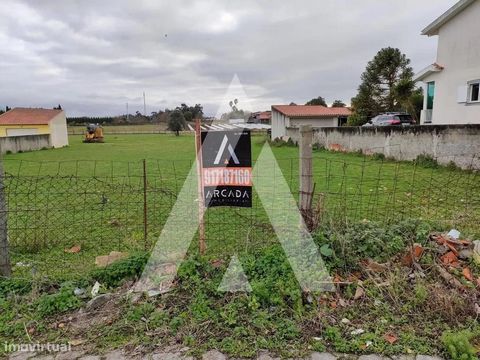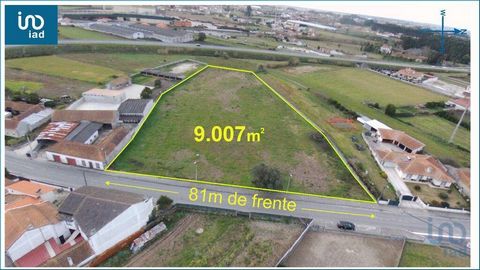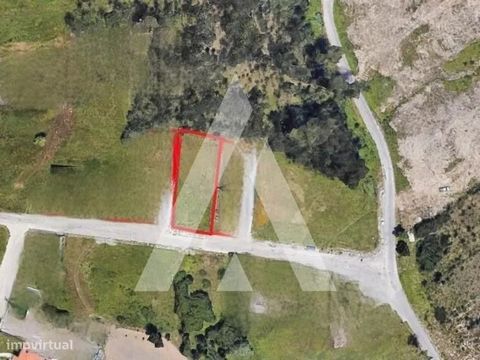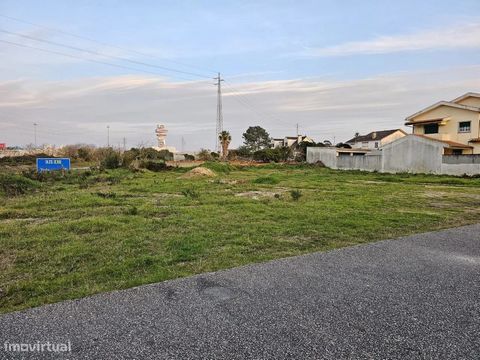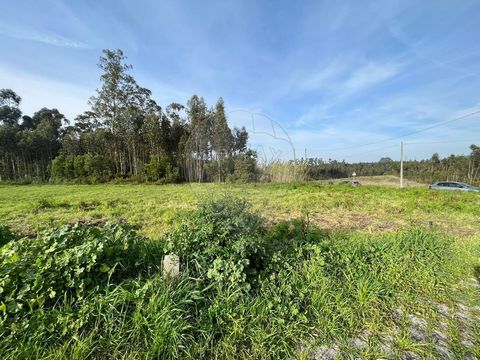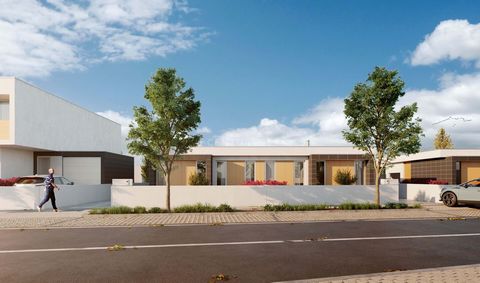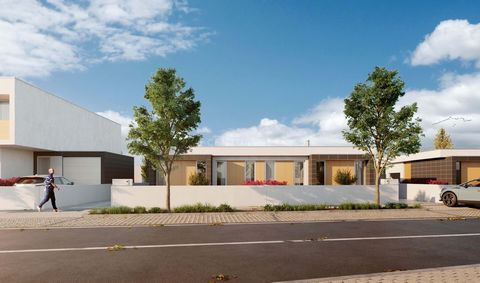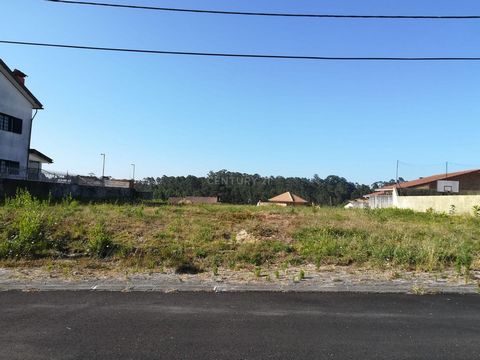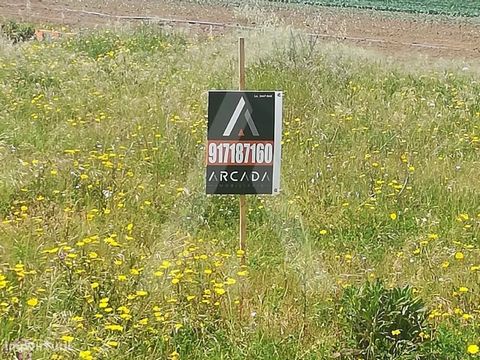This elegant, comfortable, and functional detached single-storey house is perfect for those seeking a spacious and refined home. With high-quality finishes and exotic wood construction, it offers a welcoming and distinguished atmosphere. Located in a peaceful area, just 15 minutes from Aveiro and 10 minutes from Ílhavo, it combines the serenity of country life with proximity to Oliveirinhas local industries. Ideal for nature lovers, the house is surrounded by an extensive garden and yard of approximately 740m², perfect for socializing, leisure, and relaxation. With potential for a swimming pool, this outdoor space is a true private retreat. Property Features: Plot and Outdoor Space: Situated on a 965m² plot, the villa harmoniously integrates with nature. The large garden and yard offer versatile space for outdoor activities, gardening, or creating a leisure area with a pool. Quality Materials and Insulation: Built with exotic Brazilian wood and other high-quality materials, the villa features efficient thermal and acoustic insulation, ensuring a comfortable and energy-efficient indoor environment. Heating and Comfort: The wooden structure, rock wool insulation, and heat pump for domestic water provide a sustainable heating system with low environmental impact. Living Room and Kitchen: The spacious open-plan living room flows into the modern kitchen, equipped with Smeg appliances and an island perfect for breakfast, ideal for entertaining family and friends. Bedrooms and Suite: The villa has four bedrooms, including a suite with a walk-in closet for extra privacy and comfort. The other three bedrooms are spacious and well-lit. Multifunctional Office: The additional office is versatile, ideal for remote work or conversion into another bedroom. Full Laundry Room: Functional and organized, with cabinets, a sink, and space for a washing machine and dryer. Additional Spaces: Includes a pantry, entrance hall, guest bathroom, and private bathroom in the suite, all with modern finishes. Garage and Parking: The closed garage for one car has an automated gate, with additional outdoor space for more vehicles. Outdoor Space for Socializing: The vast outdoor space is ideal for creating social and relaxation areas, with potential for a swimming pool. Location and Proximity: Peaceful and Accessible Environment: Situated in a quiet residential area with easy access to main roads like the A17, N335, ER335, and N235, ideal for those working in Aveiro, Ílhavo, or near Oliveirinha. Proximity to Services: Quick access to schools, gas stations, and green spaces, offering a practical and balanced lifestyle. Discover a home where quality of life meets comfort, modernity, and serenity. Schedule your visit without obligation.

